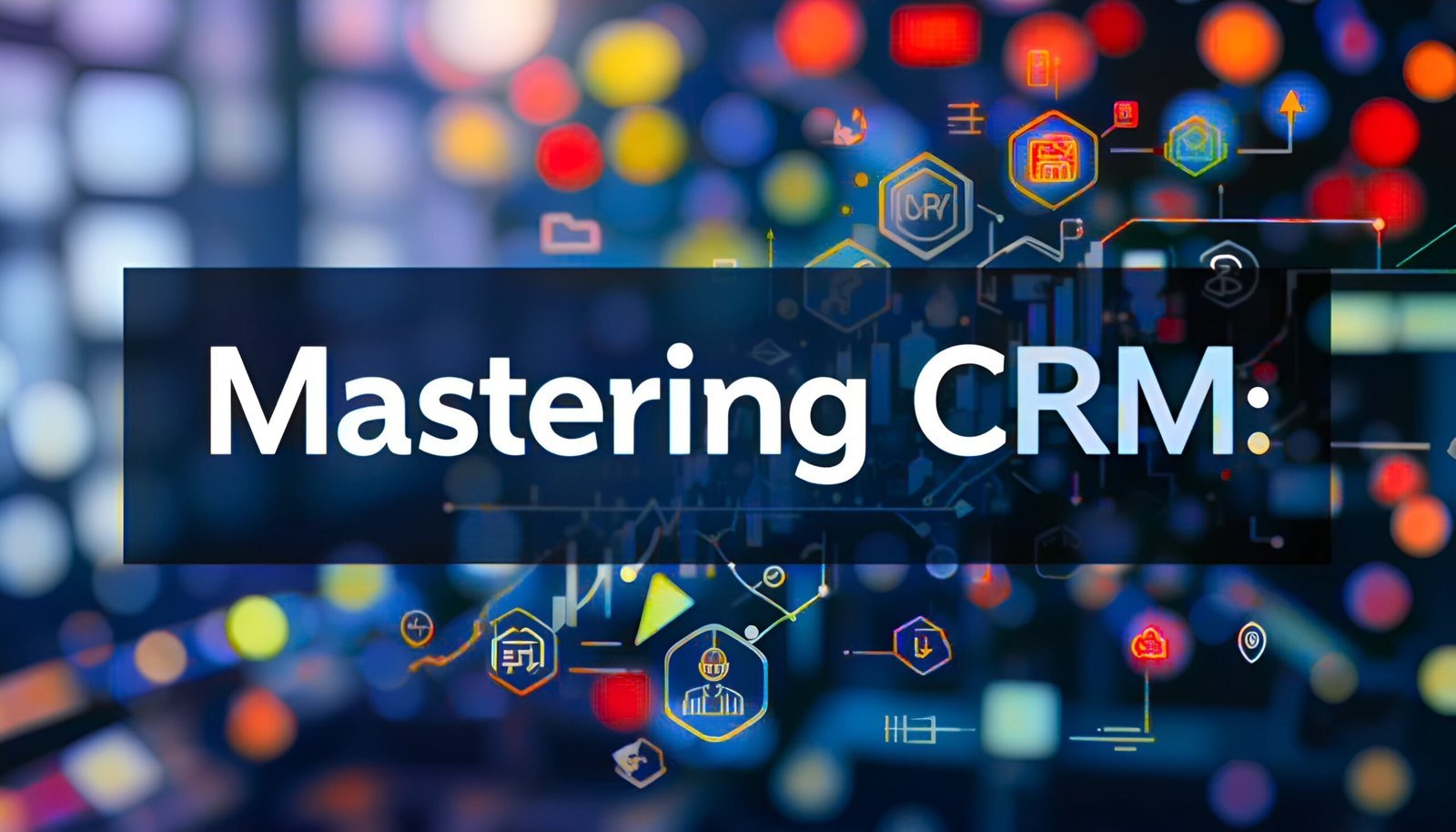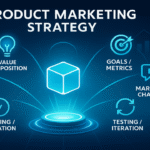Now Reading: Proven Presales Strategies for Sales Success
-
01
Proven Presales Strategies for Sales Success

Proven Presales Strategies for Sales Success
Introduction
In today’s intricate and competitive market, the role of presales has become indispensable for driving sales success. It’s no longer enough to simply have a great product; you need a strategic approach to guide potential customers through their buying journey. Effective presales is the secret weapon that can significantly impact your revenue, customer satisfaction, and overall sales efficiency. This article delves into proven presales strategies that will equip your team to not just participate in the sales process, but to lead the charge, ensuring sales excellence and sustainable growth. Mastering these strategies can truly be a game-changer, transforming your presales efforts from a supporting function to a powerful engine for boosting your sales success.
“Pre-sales is not just about technical expertise; it’s about understanding the customer’s world and building trust before the sale.”
– Chris Doornbos, CEO of ValueBlue
Understanding the Power of Presales
What is Presales and Why Does It Matter?
Presales encompasses all the strategic activities that happen before the actual sale to qualify leads, deeply understand customer needs, and build a compelling value proposition [3][5]. In today’s complex sales landscape, where solutions are often intricate and customer expectations are high, presales is more critical than ever [2]. It bridges the gap between initial interest and a closed deal by providing expertise, building trust, and tailoring solutions to specific client challenges [5].
A robust presales process offers numerous benefits:
- Higher Conversion Rates: By thoroughly qualifying leads and aligning solutions with customer needs early on, presales significantly increases the likelihood of converting prospects into paying customers [5].
- Larger Deal Sizes: Presales teams can uncover deeper customer needs and position more comprehensive solutions, leading to larger and more profitable deals.
- Improved Customer Satisfaction: When presales teams invest time in understanding and addressing customer challenges upfront, it leads to greater customer satisfaction and stronger long-term relationships [5].
- Efficient Sales Process: Presales streamlines the sales cycle by filtering out unqualified leads and providing sales teams with well-prepared prospects, saving time and resources [3].
- Better Resource Allocation: By focusing efforts on qualified and high-potential leads, presales ensures efficient allocation of sales and marketing resources.
Key Responsibilities of a Presales Team
Presales teams are multifaceted, taking on a range of critical responsibilities that pave the way for sales success:
- Lead Generation and Qualification: Identifying and prioritizing potential customers who are a good fit for your product or service, ensuring sales efforts are focused on the most promising prospects [3].
- Customer Engagement & Needs Analysis: Engaging with potential clients early in the sales cycle to thoroughly understand their business challenges, requirements, and desired outcomes [2].
- Solution Development & Customization: Leveraging technical expertise to design and customize solutions that directly address specific customer needs and demonstrate tangible value.
- Proposal Creation & Value Demonstration: Crafting compelling proposals and presentations that clearly articulate the value proposition of your solution and how it solves customer problems.
- Technical Expertise & Support: Providing technical expertise, product demonstrations, and answering complex technical questions to build customer confidence and trust.
- Competitive Research & Differentiation: Analyzing the competitive landscape to understand competitor offerings and effectively position your solution’s unique advantages.
Proven Presales Strategies for Sales Excellence
To harness the full power of presales, it’s essential to implement proven strategies that drive efficiency and effectiveness. Here are eleven key strategies to elevate your presales process:
1. Deep Customer Understanding & Qualification
- Strategy: Before any pitch, thoroughly understand your potential customers [1]. Dive deep into their needs, preferences, pain points, and aspirations.
- How-to: Engage in regular customer feedback sessions, conduct surveys, and have informal discussions to gather customer insights [1]. Analyze customer data and build detailed buyer personas [2].
- Benefit: A profound understanding of your target audience allows you to tailor your sales approach and messaging, making it resonate more effectively with potential clients [1]. It also ensures you focus your resources on the most qualified prospects, maximizing efficiency [3].
2. Leverage Sales Opportunity Management Software
- Strategy: In today’s digital age, implementing Sales Opportunity Management Software is crucial [1].
- How-to: Research and invest in a reputable platform. Train your team to use it effectively, ensuring consistent and accurate data logging [1]. Leverage automation and AI features for lead scoring and efficient lead routing [3].
- Benefit: Such software provides a streamlined way to manage qualified leads, track sales opportunities, and predict future sales trends [1]. This not only makes the complex sales process more efficient but also provides a clear roadmap to achieve your revenue targets [1]. It also enables faster lead processing and reduces response times [3].
3. Foster Teamwork and Collaboration
- Strategy: The presales stage thrives on collective effort [1]. Encourage seamless teamwork and cooperation between presales, sales, marketing, and even product development teams.
- How-to: Organize regular team meetings to discuss strategies, share insights, and address challenges [1]. Foster a culture where open communication is encouraged and team members feel valued for their contributions. Share clear process details and define roles to avoid misunderstandings [2].
- Benefit: A cohesive presales team ensures all customer bases are covered and critical details are not overlooked [1]. Collaboration leverages diverse skills and perspectives, enhancing overall team synergy [1].
4. Establish Clear and Streamlined Processes
- Strategy: Every successful operation rests on well-laid, transparent processes [1].
- How-to: Document every stage of the presales process, from lead qualification to feedback collection [1]. Regularly review and refine these processes based on feedback and changing market dynamics. Share clear process details with all team members [2].
- Benefit: Clear processes eliminate ambiguity, reduce errors, and ensure everyone on the team knows what’s expected at each step [1]. This leads to increased efficiency, predictability, and faster lead processing [3].
5. Define Roles and Responsibilities Clearly
- Strategy: In a high-performing presales team, every member has a distinct part to play [1].
- How-to: Regularly review your team’s structure and clearly outline the responsibilities of each presales representative [1]. Allocate resources in accordance with the talent you have in your team [2].
- Benefit: Clearly defined roles eliminate confusion, reduce overlaps, and ensure that every aspect of the presales stage is adequately addressed [1]. This also establishes individual and team accountability [1].
6. Enhance Communication Strategies
- Strategy: Effective communication is the bedrock of a successful presales process [1].
- How-to: Invest in reliable communication tools that suit your team’s needs [1]. Encourage open dialogues, regular check-ins, and feedback sessions. Teach your team to listen actively, provide clear and concise answers, and adapt their communication style to the customer’s preferred channels [5]. Adopt a customer-first approach by communicating through preferred channels [5].
- Benefit: Seamless communication ensures everyone is on the same page, reduces misunderstandings, and fosters a collaborative environment [1]. Strong communication enhances team synergy and improves customer experience [1][5].
7. Develop Tailored Sales Collateral & Value Propositions
- Strategy: Your sales materials and value propositions should be customized to fit each customer profile [4].
- How-to: Work closely with your marketing team to create tailored content for each target profile [4]. Include case studies, product demonstrations, or presentations that highlight how your product or service solves the customer’s primary pain points [4]. Add data points and social proof to proposals to strengthen your value proposition [2].
- Benefit: Tailored sales collateral increases relevance and engagement [4]. Prospects are more likely to respond positively when your materials speak directly to their pain points [4]. This demonstrates value effectively and increases conversion rates [4].
8. Prepare for Objection Handling Early
- Strategy: Objection handling is a critical presales skill [4]. Prepare to address customer concerns or doubts proactively and early in the process.
- How-to: Work with your sales team to identify common customer objections, such as price, product features, or timing [4]. Train your presales teams to address these objections in early conversations by thoroughly understanding the customer’s primary pain points [4].
- Benefit: Addressing objections early builds trust with potential customers and speeds up the sales cycle [4]. Customers feel understood, and your sales team can close deals faster [4].
9. Conduct Competitor Research & Analysis
- Strategy: To effectively position your solution, thorough competitor research is essential [2].
- How-to: Let your presales team research your competitors, their products/services, pricing, customer base, and sales strategies [2]. Analyze competitor offerings to identify your unique differentiators.
- Benefit: You will be able to impress your prospects with a unique value proposition that stands out from the competition [2]. This enables a more informed and strategic sales approach.
10. Leverage Data Analysis to Improve Performance
- Strategy: Data analysis is key to continuously improving presales performance [5].
- How-to: Monitor Key Performance Indicators (KPIs) to measure presales success [5]. Track conversion rates, time-to-close metrics, customer feedback, and team efficiency [5]. Use data analysis tools to gain actionable insights and identify areas for optimization [5]. Leverage post-sales insights to refine future strategies [5].
- Benefit: Data-driven insights enable you to make informed decisions, refine your sales strategies, optimize processes, and enhance overall presales performance [5].
11. Adopt a Proactive Approach & Continuous Learning
- Strategy: A proactive approach and a commitment to continuous learning are vital for presales excellence [5].
- How-to: Anticipate customer needs before they ask, providing proactive information such as detailed product specifications or proposal guidance early on [5]. Equip your presales team with insights about customer preferences, market trends, and competitor offerings [5]. Foster continuous learning to ensure your team stays updated with product knowledge, technical expertise, and industry trends [5].
- Benefit: Proactive presales demonstrates your commitment to customer satisfaction and builds trust and loyalty [5]. A knowledgeable and continuously learning team can confidently guide prospects and empower them to make confident buying decisions [5].
Measuring Presales Success: Key Performance Indicators (KPIs)
To effectively measure the success and impact of your presales efforts, focus on tracking these Key Performance Indicators (KPIs) [5]:
- Conversion Rates Across the Sales Funnel: Track conversion rates at each stage of the sales funnel, from lead qualification to proposal acceptance, to identify bottlenecks and areas for improvement [5].
- Time-to-Close Metrics: Measure the average time it takes to close deals after presales engagement. A shorter time-to-close indicates efficient presales processes.
- Customer Feedback & Satisfaction Scores: Regularly collect customer feedback on the presales experience to gauge satisfaction levels and identify areas for enhancement.
- Impact on Revenue Growth: Analyze the correlation between presales activities and overall revenue growth to demonstrate the tangible impact of presales efforts.
- Lead Qualification Rate: Monitor the percentage of leads qualified by the presales team that convert into sales opportunities, reflecting the effectiveness of lead qualification processes [3].
- Proposal Acceptance Rate: Track the rate at which presales proposals are accepted by clients, indicating the quality and relevance of solutions proposed.
- Customer Retention Rate: Assess the long-term impact of presales on customer loyalty and retention, as strong presales engagement often leads to more satisfied and loyal customers [5].
- Team Efficiency & Productivity: Measure the efficiency and productivity of the presales team, such as the number of leads handled per team member and the quality of their engagement.
Conclusion
In conclusion, proven presales strategies are no longer optional—they are essential for achieving sustainable sales success in today’s dynamic market. By understanding the power of presales and implementing these key strategies, you can equip your team to be more effective, efficient, and customer-centric.
Investing in a robust presales process yields significant returns, including higher conversion rates, larger deal sizes, improved customer satisfaction, and a more streamlined sales operation. By focusing on deep customer understanding, leveraging technology, fostering collaboration, establishing clear processes, and continuously optimizing performance through data analysis, you can transform your presales efforts into a powerful engine for sales growth.
Embrace these strategies, empower your presales team, and watch your sales success soar. Presales excellence is not just a support function; it’s the foundation upon which sustainable sales growth is built.
Frequently Asked Questions (FAQ)
Q1: What is the primary goal of presales?
Answer: The primary goal of presales is to qualify leads, thoroughly understand customer needs, provide technical expertise, and build a strong value proposition before the actual sale. This proactive approach aims to increase conversion rates, enhance sales efficiency, and ensure customer satisfaction by aligning solutions with specific client requirements [3][5].
Q2: Who is typically involved in the presales process?
Answer: A successful presales process often involves a collaborative team, typically including presales engineers who provide technical expertise, sales representatives who manage client relationships, solution architects who design customized solutions, and technical experts who offer specialized knowledge. In some cases, marketing and product development teams may also be involved to align messaging and solutions with market needs [1].
Q3: How does presales differ from sales?
Answer: Presales and sales are distinct yet interconnected phases in the customer journey. Presales primarily focuses on the initial engagement, delving deep into understanding customer needs, and building interest by showcasing how a solution can address their challenges. Sales, on the other hand, concentrates on closing deals and finalizing the purchase. Presales acts as a crucial support system for sales, effectively preparing and qualifying leads, and ensuring that sales teams can focus their efforts on high-potential prospects who are well-informed and ready to buy [3].
Q4: What are the benefits of investing in presales?
Answer: Investing in a robust presales process yields a multitude of benefits that significantly impact business success. These advantages include: an increase in qualified leads ensuring efficient resource allocation, faster lead closure by streamlining the sales cycle, efficient resource allocation by focusing on high-potential prospects, deeper customer understanding leading to tailored solutions, effective risk mitigation through early identification of challenges, stronger customer relationships built on trust and expertise, and ultimately, boosted revenue growth driven by higher conversion rates and larger deal sizes [3][5].
Q5: What are some key skills for presales professionals?
Answer: Effective presales professionals require a diverse skillset to excel in their roles. Key skills include: strong technical product knowledge to provide credible expertise, excellent communication and presentation skills to articulate value propositions clearly, active listening to understand customer needs deeply, problem-solving abilities to design tailored solutions, customer empathy to build rapport and trust, and a solid understanding of the overall sales process to align presales efforts with sales objectives [5].
References
[1] – PreSkale – 5 Effective Presales Strategies To Supercharge Your Sales Process – https://www.preskale.com/blog/presales-strategy
[2] – Kylas CRM – 7 Effective Pre-sales Activities for a Winning Sales Process – https://kylas.io/sales-effectiveness/pre-sales-activities
[3] – Revegy – The Power of Pre-Sales Strategy – https://www.revegy.com/blog/the-power-of-pre-sales-strategy/
[4] – Alore – Pre-Sales Secrets: Discover the Strategy for Huge Wins – https://www.alore.io/blog/pre-sales
[5] – Desku.io – Pre-Sales Support: A Guide To Definition, Benefits, And Enhancing Performance – https://desku.io/blogs/pre-sales-support-guide/
[6] – Osborne Financial. Thriving in volatility. https://osbornefinancial.im/2024/08/thriving-in-volatility/
[7] – Bajaj Finserv. Market Volatility – What Is Meaning and How to Manage It. https://www.bajajfinserv.in/investments/what-is-market-volatility
[8] – HSBC Asset Management. Six ways to handle market volatility. https://www.assetmanagement.hsbc.com.hk/en/intermediary/investor-resources/investment-academy/six-ways-to-handle-market-volatility
[9] – Holborn Assets. How to Reduce Financial Risk During Economic Uncertainty. https://holbornassets.com/blog/investments/how-to-reduce-financial-risk-during-economic-uncertainty/
[10] – Marsh McLennan. How can businesses successfully navigate economic uncertainty? https://www.marshmclennan.com/insights/publications/2023/march/how-can-businesses-successfully-navigate-economic-uncertainty.html















